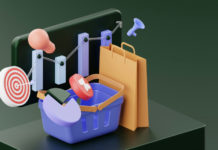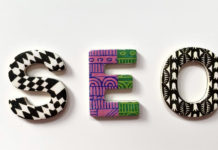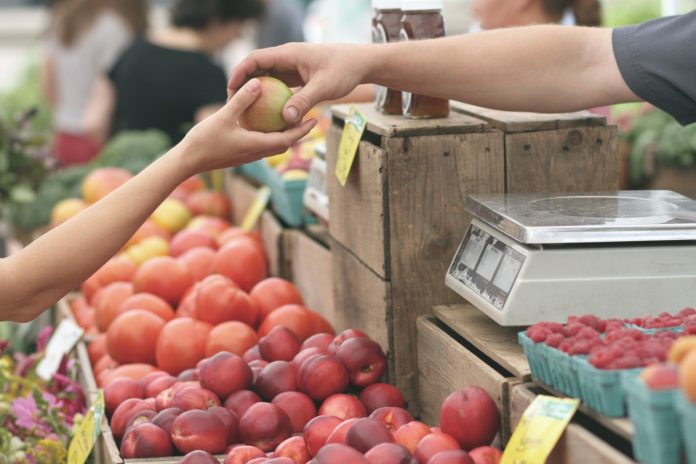Today, consumers are settling into what will persist as a “new normal” for the foreseeable future. Amongst other things, spending habits were forced to drastically change seemingly overnight, and this halt and reroute is resulting in the formation of new habits.
As businesses around the globe struggle to keep their doors open, they’re facing the reality that the people who most could help them do that, their customers, are also struggling to decide how to best move forward.
These evolving changes in consumer behavior will continue to shape the future of our economy post-COVID-19 and decide which businesses make it to see and compete in that future.
Needless to say, it’s wildly important to watch as these trends take hold and learn how to stay flexible and adaptable enough to capitalize on them. This article will go through the four major evolving consumer habits to watch as we look to progress into that post-COVID-19 future.
Evolving Consumer Habit #1: Community Building
The first noticeable trend we’ll discuss is the change in consumer behavior around local communities. A study found that 80% of consumers feel just as connected or more connected to their community through this crisis. As community circles continue to be formed, some interesting things are shifting for businesses.
Local Businesses
First and foremost, local businesses are positioned to capitalize on the community building trends we’ve seen come out of COVID-19.
There have been large pushes to stay connected to our loved ones, help our community members, and support our local businesses. In addition to this front-end pressure is a back-end understanding that global supply chains have been tested to the brink.
Due to these opposing forces from the pandemic, many people are looking for solutions more local to their area for day-to-day needs.
Is there a way to tap into the “locality” of your business?
Relationship-Based Businesses
We’ve also seen a shift toward supporting one another – people more than ever are looking to help others. For example, those who have been laid off to find a job or have struggled in business to stay afloat.
As we start to care more about those around us, it’s likely that relationship-based businesses will do well into and through the “new normal” phases of recovery.
Is there a way to foster deeper relationships with your customers (as an example, through building engaging content on social media)?
Evolving Consumer Habit #2: Focus on Health
While the shift to healthier eating habits has been in the works for a while, this pandemic has certainly escalated it. This shift in focus that otherwise would have taken years has happened in a matter of months.
Consumers are looking to consume and spend money on things that support a healthy lifestyle (whether it is immediate, things that improve health today, or things that improve health over time).
This trend and blooming consumer habit is one that is likely to stick around far beyond this immediate crisis.
Is there a way to promote your business in a way that adds supports a healthy lifestyle or otherwise builds stability?
Evolving Consumer Habit #3: Conscious Consumption
As the fragile economic systems around the planet show signs of cracking, it’s no wonder consumers are now looking to reduce consumption to only what is necessary.
There have been historic layoffs and spiking numbers of unemployed persons, thousands of businesses that have closed their doors for the last time, and trillions of dollars pumped into the economy to artificially prop it up in a way that we all realize are ultimately unsustainable (the repercussions of which may be felt for generations).
These harsh realities have led to a survival mentality for a lot of consumers. Unfortunately, no one knows if they will be the next one laid off as this economic uncertainty continues to unfold over the next several months.
Likewise, any non-essential purchase feels like a risk against existing (and comforting) assets.
This conscious consumption trend historically ebbs and flows with the economy, but this time may be different. Consumers have had the time to sit at home with nowhere to go and evaluate their behaviors in a way they haven’t before.
In fact, many consumers have realized how non-essential many of their previous behaviors were. They’ve “woken up” to the fact that they don’t need as much as they think they do to be happy.
While this may sound like the end of capitalism, it’s actually more of a turning point for our economy. The difference is that people will now look for meaning beyond the act of consumption to justify a purchase.
We already saw this trend evolving with eco-friendly and minimalist movements. However, conscious consumption has embodied a totally mindful approach than just considering the environmental impact of purchases.
How can you add meaning to the baseboards of your business? Now is the time to solidify the value you add and the problem you solve for consumers moving forward.
Evolving Consumer Habit #4: Homebody Syndrome
Lockdowns have lifted in a lot of places, but that hasn’t stopped nearly everyone from continuing to work from home where possible or staying home as often as possible when not working. This trend could be hugely impactful for brick and mortar stores moving forward.
Consumers are getting used to ordering things online that they’d never thought to look for in a pre-COVID-19 world.
There is a lot of evidence to suggest this will persist – according to McKinsey, “in most countries, more than 70 percent of survey respondents don’t yet feel comfortable resuming their “normal” out-of-home activities.” Meaning they’re more likely to do their shopping online rather than in-person.
As we get more comfortable with online ordering and find ourselves “out and about” less often, retailers and quick-service businesses like cafes are going to need to reevaluate.
Can they convert their business to co-operate online or create an experience worth leaving the home for (even when it isn’t convenient)?
How can you turn your business into an experience? Is there a pivot to your strategy that would allow you to capitalize on the homebody syndrome of the current environment?
Summary
The evolving consumer habits to watch include increased community building, a focus on health, a mentality of bringing spending back to the basics, and a growing homebody syndrome.
If your business has been impacted by COVID-19, now is the time to capitalize on these trends. Remaining flexible and adaptable will be the keys to survival in and beyond this strange season.




































